In an effort to help fill your at-home days, we’ve compiled a WGEP reading (and viewing!) list of some of our favorite books and films on topics like gender inequality, girls’ education and African culture. Read on to see why each choice made the list, along with our favorite quotes, and discussion questions to help guide your reading.
The Moment of Lift by Melinda Gates
Melinda Gates demonstrates the importance of women’s empowerment for the betterment of society, and underscores the need for development initiatives to be community-led in order to be truly effective and sustainable, a core belief at WGEP!
WGEP’s favorite quote: “As women gain rights, families flourish, and so do societies. That connection is built on a simple truth: Whenever you include a group that’s been excluded, you benefit everyone. And when you’re working globally to include women and girls, who are half of every population, you’re working to benefit all members of every community. Gender equity lifts everyone.”
In Pursuit of Disobedient Women by Dionne Searcey
Dionne Searcey’s new book begins with her move to Dakar, Senegal, over 120 miles away from WGEP Senegal’s headquarters, but her stories of courage and innovation of women in West Africa can resonate around the world.
Half the Sky by Nicholas Kristof & Sheryl WuDunn
Nicholas Kristof and Sheryl WuDunn illustrate that the empowerment of women is the key solution to reducing global poverty, and changing the world. This book embodies the work we do at WGEP to create more equitable communities through the advancement of girls’ education.
WGEP’s favorite quote: “the single most important way to encourage women and girls to stand up for their rights is education, and we can do far more to promote universal education in poor countries.”
Period. End of Sentence. directed by Rayka Zehtabchi
This short documentary highlights how access to sanitary pads can help women succeed, and are a source of empowerment for women in rural India! WGEP provides our scholarship recipients with menstrual pads to ensure they don’t miss school while they’re on their period.
For the Love of Men by Liz Plank
Liz Plank connects the myriad of ways that gender inequality negatively impacts men, from homelessness to gun violence. The path forward she offers aligns with WGEP’s efforts to involve boys in our programs to shift attitudes about gender roles and women’s role in society.
WGEP’s favorite quote: “You can “empower” girls all you want, but if no one is speaking to the boys and men about gender equality, too, the work can be fruitless or even counterproductive.”
The Danger of a Single Story, a TED talk by Chimamanda Adichie
We love this viral TED talk by Chimamanda Adichie for her thoughtful and funny reminders on the dangers of painting the entire continent of Africa as a monolith.
WGEP’s favorite quote: “The problem with stereotypes is not that they are untrue, but that they are incomplete.”
I Am Malala by Malala Yousafzai
WGEP’s favorite quote: “I raise up my voice not so I can shout but so that those without a voice can be heard… we cannot succeed when half of us are held back.”
Unbowed: A Memoir by Wangari Maathai
In her memoir, Nobel Peace Prize winner Waangari Maathai writes about her upbringing in rural Kenya, and how her determination to get an education influenced who she became. She is an extraordinary example of what one girl can achieve if given the opportunity to decide for herself her own future!
WGEP’s favorite quote: “Education, if it means anything, should not take people away from the land, but instill in them even more respect for it, because educated people are in a position to understand what is being lost.”
Are there any books we didn’t include that you think should make the list? Let us know in the comments!

136 N. Marion Street, Suite 201, Oak Park, Illinois 60301
708-613-5260 / info@womensglobal.org
© 2021 All rights reserved
Leave a Reply